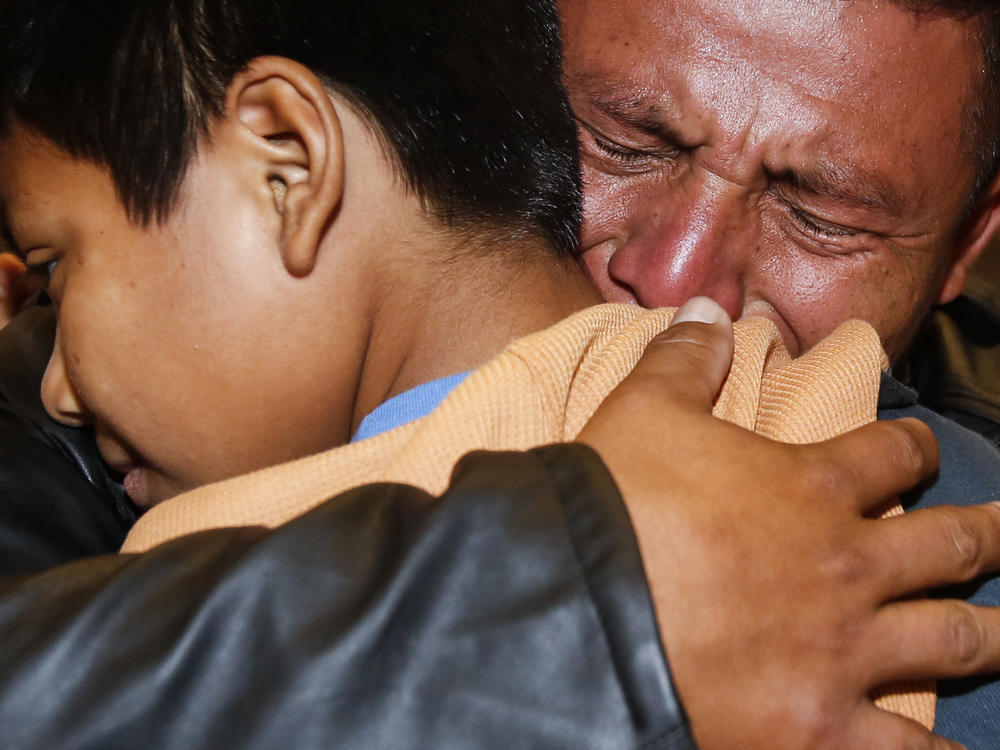Section Branding
Header Content
Parents Of 545 Children Separated At U.S.-Mexico Border Still Can't Be Found
Primary Content
Despite a federal judge's order that the government reunite families who had been separated at the U.S.-Mexico border under the Trump administration's "no tolerance" migration policy, the parents of 545 children still can't be found, according to a court document filed Tuesday by the U.S. Justice Department and the American Civil Liberties Union.
Thousands of families were separated under the policy before the Trump administration ended the practice in 2018. The ACLU successfully sued the government, winning a court order to reunite families. Thousands of parents and children were reunited within weeks.
But about 1,000 families who had been separated in a pilot program in 2017 were not covered by the initial court order — reunification of this group was ordered only last year. The passage of time has made finding both parents and children more difficult.
"What has happened is horrific," says Lee Gelernt, deputy director of the ACLU Immigrants' Rights Project, who has been leading the litigation. "Some of these children were just babies when they were separated. Some of these children may now have been separated for more than half their lives. Almost their whole life, they have not been with their parents."
The update on reunification efforts was filed ahead of a status conference scheduled for Thursday before U.S. District Judge Dana Sabraw in San Diego.
The filing estimates that two-thirds of the separated parents are believed to have returned to their home countries. Nongovernmental groups appointed by the court have "engaged in time consuming and arduous on-the-ground searches for parents in their respective countries of origin," according to the filing, but those efforts were halted by the coronavirus pandemic and are only now resuming in limited fashion.
NPR's Joel Rose reports that the children initially went into a shelter system before being placed with sponsors across the country and that many will likely try to remain in the United States. The ACLU's Gelernt says about 360 of the children still have not been located.
The case is Ms. L. v. U.S. Immigration and Customs Enforcement et al., in U.S. District Court for the Southern District of California, 3:18-cv-428.
Copyright 2020 NPR. To see more, visit https://www.npr.org.

